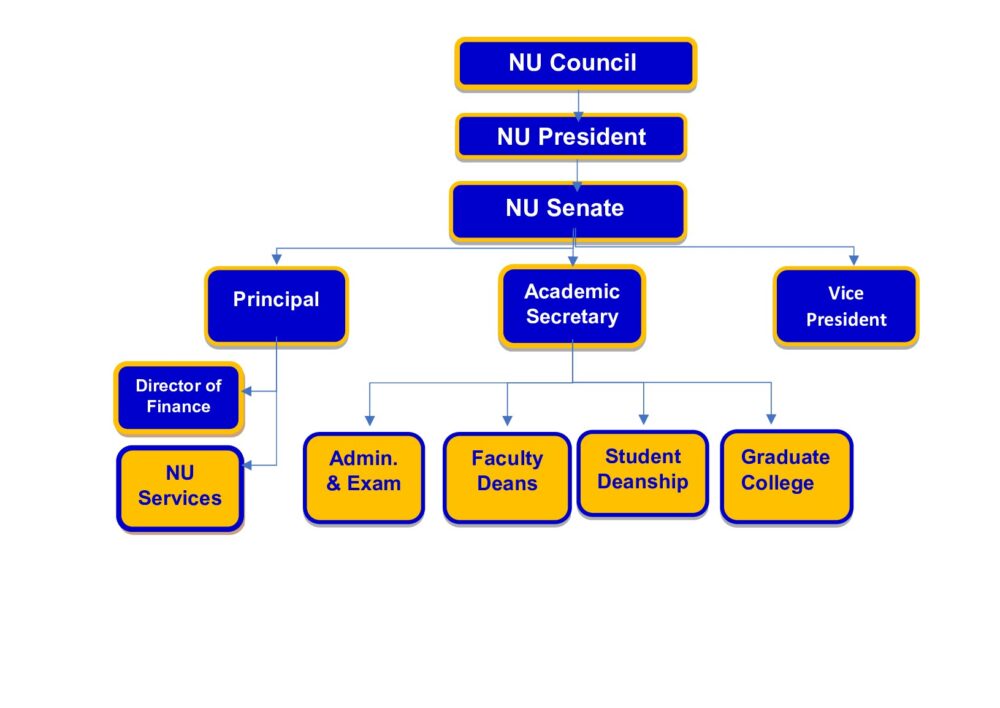University Governance and Administration
Governance Structure
The Council of Nile University is the governing and executive body of the University. It is responsible for the finance, property, investments and general business of the University, and for setting its general strategic direction. The Council has six formally constituted committees, to which it delegates part of its authority.
The Council brings together alumni, national and neighbourhood organizations as key stakeholders, to help the University further the implementation of the University Strategy.
The president of the university: the chief academic and administrative officer of the University, who has the general responsibility to the Council for maintaining and promoting the efficiency and good order of the University. The University. The President exercises considerable influence upon the development of institutional strategy, the identification and planning of new developments, and the shaping of the institutional philosophy. The President focuses primarily on the University’s external relations.
The following are chaired by the University President:
- Appointments Committee
- Promotions Committee
- Deans’ Committee
- Academic Advisory Committee
- Strategic Planning & Development Committee
- Quality Management Administration
- Libraries & Documentations Committee
The Senate is the highest academic authority of the University. Its role is to approve Academic Programs, award degrees, approve academic regulations and all matters related to the Education and research functions of the University.
The Academic Affairs
The Academic Secretary reports directly to the President and is responsible for the delivery of the University’s core mission: education and research. The Academic Secretary and the President together have responsibility for the strategic academic administration and development of the University.

University Administration, Policies and Regulations
The University Act and Statutes
The University Act is the legal Charter that defines the University’s goods, powers of statutory bodies, the role of the President and senior Officers.
The Statutes define the, Powers and Function of the University Councils, Faculties, Committees, Centers, Institutes etc. including the power to appoint senior University officers.
The University Council makes Ordinances that give further details on the ways in which the University is governed within the general framework of the University Act and Statutes.
The Ordinances are organized by subject matter:
- Governance
- Academic
- Finance
- Staff
- Students
Regulations are made under delegated authority of the Universe Council and Senate.
The University has other statutes, policies, regulations and procedures that cover areas such as:
- Academic regulations
- Finance
- HR
- Students
- ICT
- Research
- Graduate Studies
- External Relations
- EDC
- QMA

